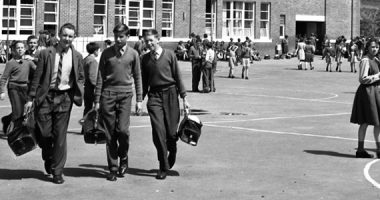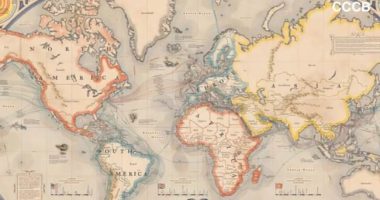Internet Universe aims is to offer a global view of the phenomenon, an understanding of the new system that is emerging in order to offer tools to the teachers of children who were born digital natives.
Constructing the Net
Internet: a history under construction
By Juan Insua
La història d’Internet és una història en construcció, una creació col·lectiva, l’origen de la qual prové de l’àmbit cientificomilitar i que actualment ha passat a formar part de la nostra vida quotidiana. Quin és l’abast real de la revolució digital i com afecta tots els àmbits de coneixement humà? Quins canvis implica la societat del coneixement i la informació? Què representa l’apogeu de les TIC i quin paper han de tenir en l’educació i l’aprenentatge?
Workshop “Building the network”
By Efraín Foglia
In this workshop we buildt a simulated telecommunications network that allowed us to discover the real structure of the Internet. Using this methodology we can understand what is required in order to be connected to the Network and what implications are involved on a social, economic and political level.
Programming Logic
Does the Internet make us more superficial or smarter?
By Cristina Sáez
El uso de Internet modifica nuestro cerebro gracias a la plasticidad de este órgano. Pero, ¿cuáles son sus efectos sobre los procesos cognitivos? ¿Qué consecuencias tiene sobre nuestra capacidad de concentración, de pensamiento crítico, de memoria, de agilidad mental o de razonamiento? En la actualidad existe un debate acerca de cuáles son los efectos de Internet a nivel cognitivo, con dos visiones contrapuestas: quienes lo ven como una herramienta que nos puede hacer más inteligentes y quienes piensan que nos hará más superficiales. ¿Cuáles son los argumentos de unos y otros?
Workshop “The logic of programming: from everyday life to computing”
By Irene Lapuente
The point of origin of good programming is to define what the problem is to be resolved, and from there, to decompose the process in order to get to it and construct all the modules necessary to make it possible. How can we apply this logic to everyday life? And to the planning of academic work in order to obtain better results? How is it applied to computing? During this workshop we worked on some concepts typical of Computational Thinking. We went on a journey from codes and natural and formal languages to the implications of the concepts of distributed and decentralised computing typical of the Internet. We explored skills linked to computing that are developed mainly during the problem-solving phase such as: decomposing/modularising, recognition of patterns, abstraction and algorithms. We talked, too, about the phenomenon of problem discovery.
Social Networks and Community Action
Social networks: risks and potentials for children and teenagers
By Jordi Bernabeu
Why are the social networks so attractive to children and teenagers? What do they provide them with? How do they affect, in positive and negative terms, their interpersonal relations and the creation of their own identity? Have the social networks changed the concept of privacy? In what sense? Where is the boundary between the real and the virtual world? How can we detect or prevent addiction? Is it possible to make good use of the social networks?
Social networks can reinforce a series of positive values such as cooperation and teamwork and favour the development of collective intelligence. Unfortunately, inadequate use of them can produce isolation, autistic tendencies, addiction dynamics, a devaluation of the concept of friendship and can lead to the user confusing the physical world with the virtual world. Knowing more about the functioning of social networks will help us to encourage a healthier use of them.
Workshop “The social networks as a tool for the construction of an aware and participative citizen”
By Isidre Plaza and Senén Roy
Internet is a network of networks; it cannot be understood without its social dimension. Technology must help the pupils of this century to extract all the collective intelligence that can help them to develop in a global world.
This workshop will show, in a practical way, how the social networks can give new meaning to the public space and the common good, and how they can transform democracy and active participation in the political sphere in all of their representations (for example: How can they encourage participation in school government?). In short, how the social networks can help us to become more committed citizens.
The ecological impact of Internet
The materialisation of the cloud and the ecological consequences of the Internet
By Marcus Hurst
Within a context of global ecological crisis, what is the environmental impact of the Internet? What is its material dimension? Can the Internet collaborate in creating a more sustainable world?
Workshop “The ecological footprint of everyday use of the Internet”
By Jordi Oliver
This workshop explored, in a practical and very graphic way, what the ecological footprint is of everyday actions that are carried out via the Internet.





Leave a comment